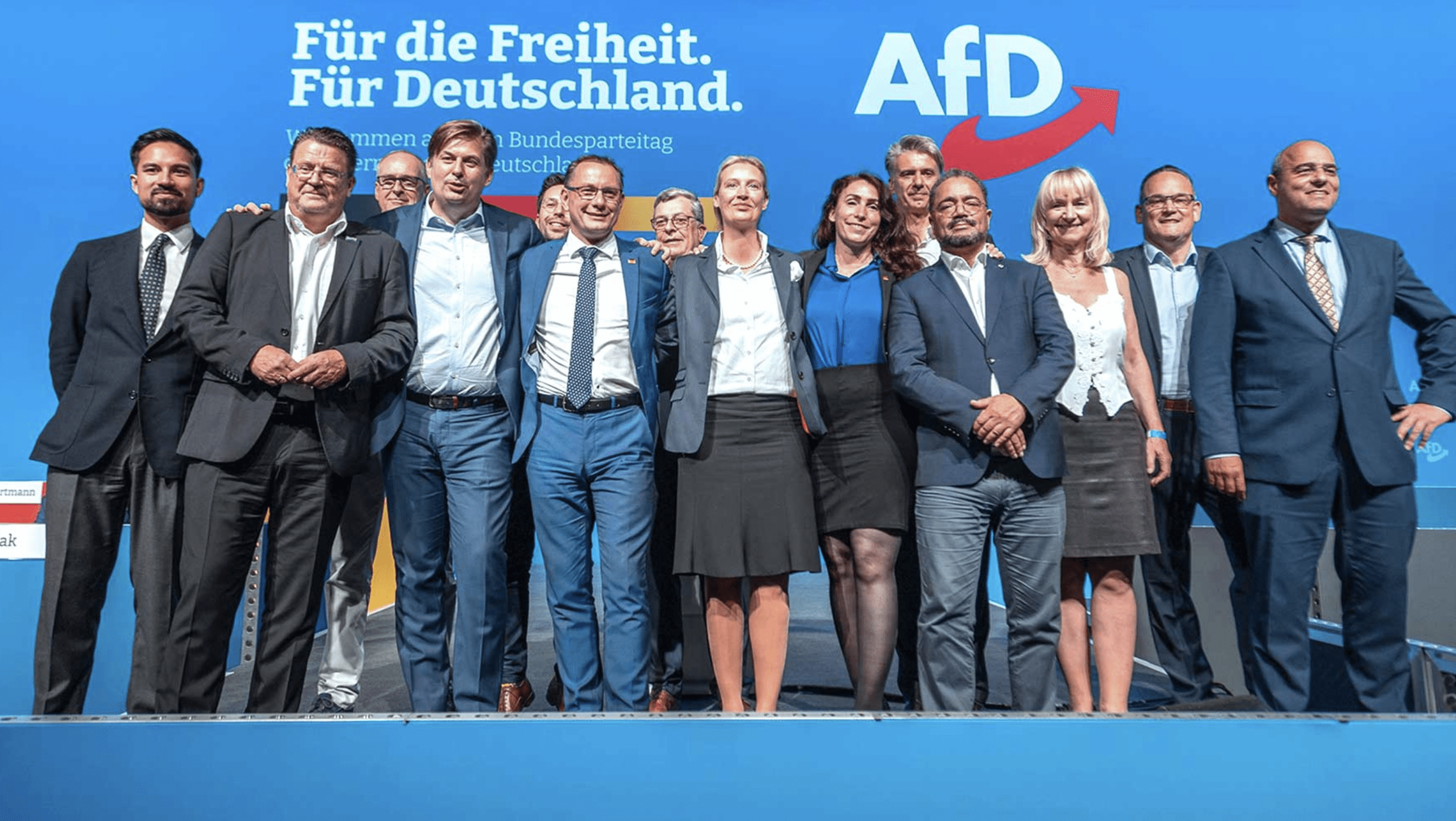
The German Alternative für Deutschland (AfD) recently held its annual party convention from June 17th-19th in Riesa, Saxony. During the convention, a new federal board was elected. Tino Chrupalla was confirmed as chairman with 53% of the votes, while Alice Weidel was elected as the co-chairman with 67%. Chrupalla and Weidel are both also leaders of the parliamentary faction of the AfD and have been the AfD’s top candidates in the most recent federal election.
The election of Chrupalla and Weidel is meant to signal nationwide unity within the AfD: Chrupalla being a man from the East and Weidel a woman from the West. In recent months, the AfD has been suffering from internal quarrels and faces increasing division between the eastern and western factions of the party, a chasm that has only grown deeper with recent disappointing election results.
Chrupalla has vowed to shape the party as a “center AfD,” since many of the internal quarrels stem from a worry that the right-wing within the party is gaining too much influence. Unsurprisingly, many mainstream commentators were more interested in Björn Höcke, the chairman of the AfD in Thuringia and unofficial leader of the more right-wing faction within the AfD. News outlets interpreted the result as a strengthening of Höcke’s position and predicted that he will become chairman at some point in the future.
The other members of the federal board, which consists of a total of 14 members, are for the most part confidantes of Chrupalla, while none of the “rebels” close to Jörg Meuthen, the former chairman who left the party earlier this year after a dispute over “right tendencies” within the AfD, were elected.
Despite efforts for a united federal board, the end of the convention was an indicator that real unity within the AfD is still a long way off. A resolution on European politics, proposed by Björn Höcke, honorary chairman Alexander Gauland, and others, led to disturbances and controversial discussions. Some party members criticized that the resolution referred to the war in Ukraine merely as the “Ukraine conflict,” which in the eyes of some played down the role of Russia as the main aggressor. Chrupalla and Weidel tried to defuse the conflict and suggested passing the resolution to the federal board, but the proposal was rejected twice. This led in turn to speakers bemoaning that the newly elected federal board was already being “dismantled” and even to demands that the convention be aborted.
Only after several representatives of state factions took the stage did a small majority vote to pass the resolution on to the federal board for further editing. The resolution titled “Europa neu denken” (“Rethinking Europe”) suggests, among other things, a dissolution of the current EU and closer ties to Russia. According to Höcke, the resolution is an answer to those that accuse the AfD of “only opposing things” and offers “our vision of Europe” instead. In an interview following the convention, Alexander Gauland stressed the need to “finally put the topics that move people at the center of our efforts again, and not the internal quarrels.”
